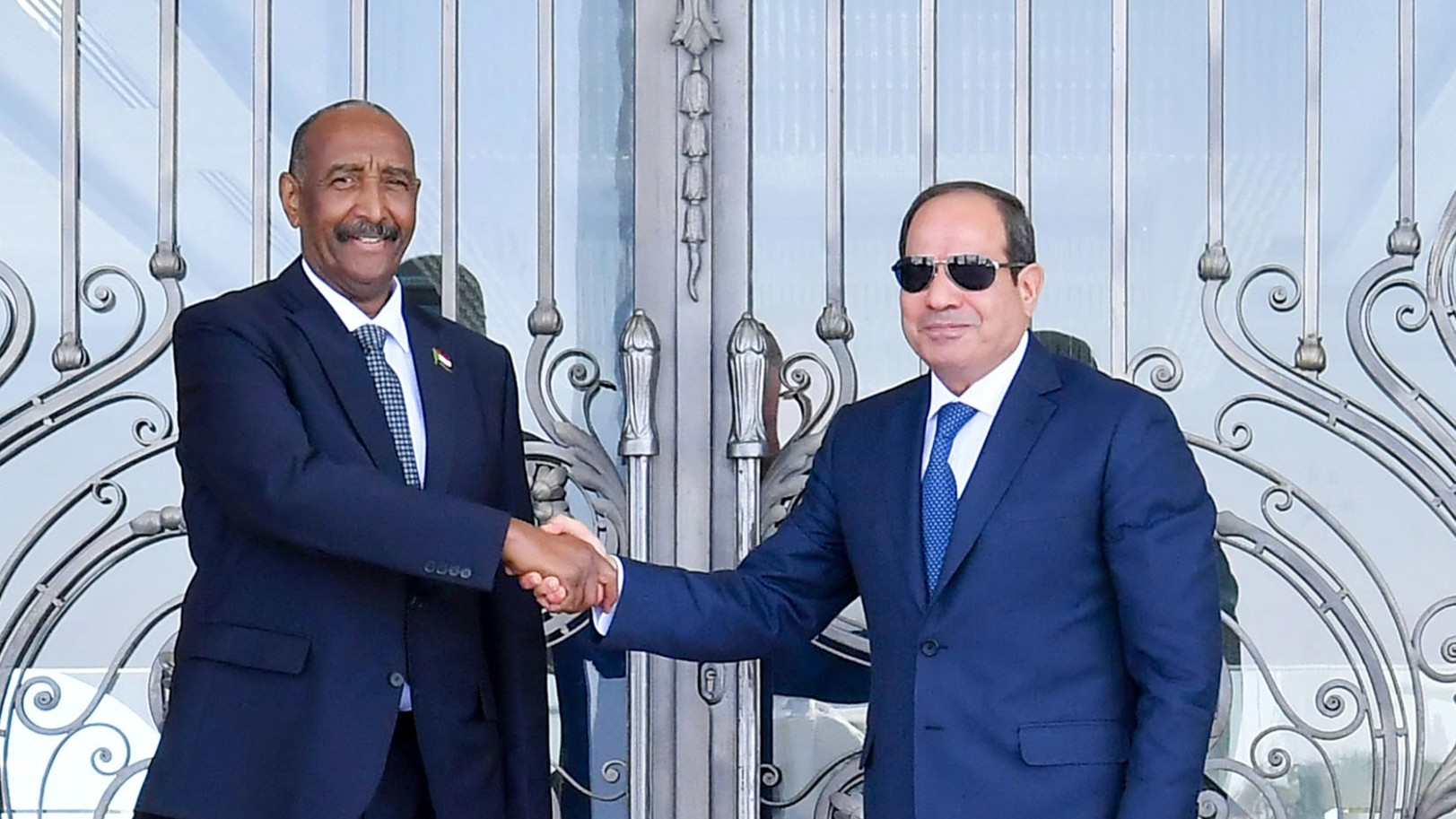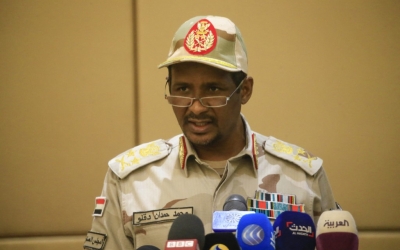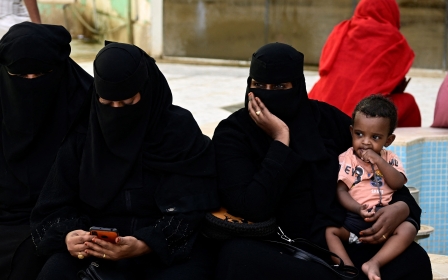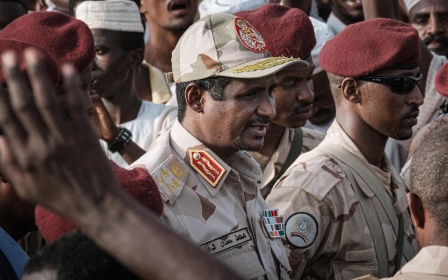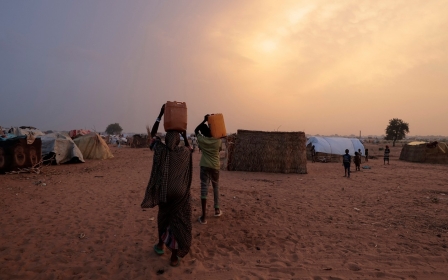Sudan's Burhan escapes siege to start a sabre-rattling tour
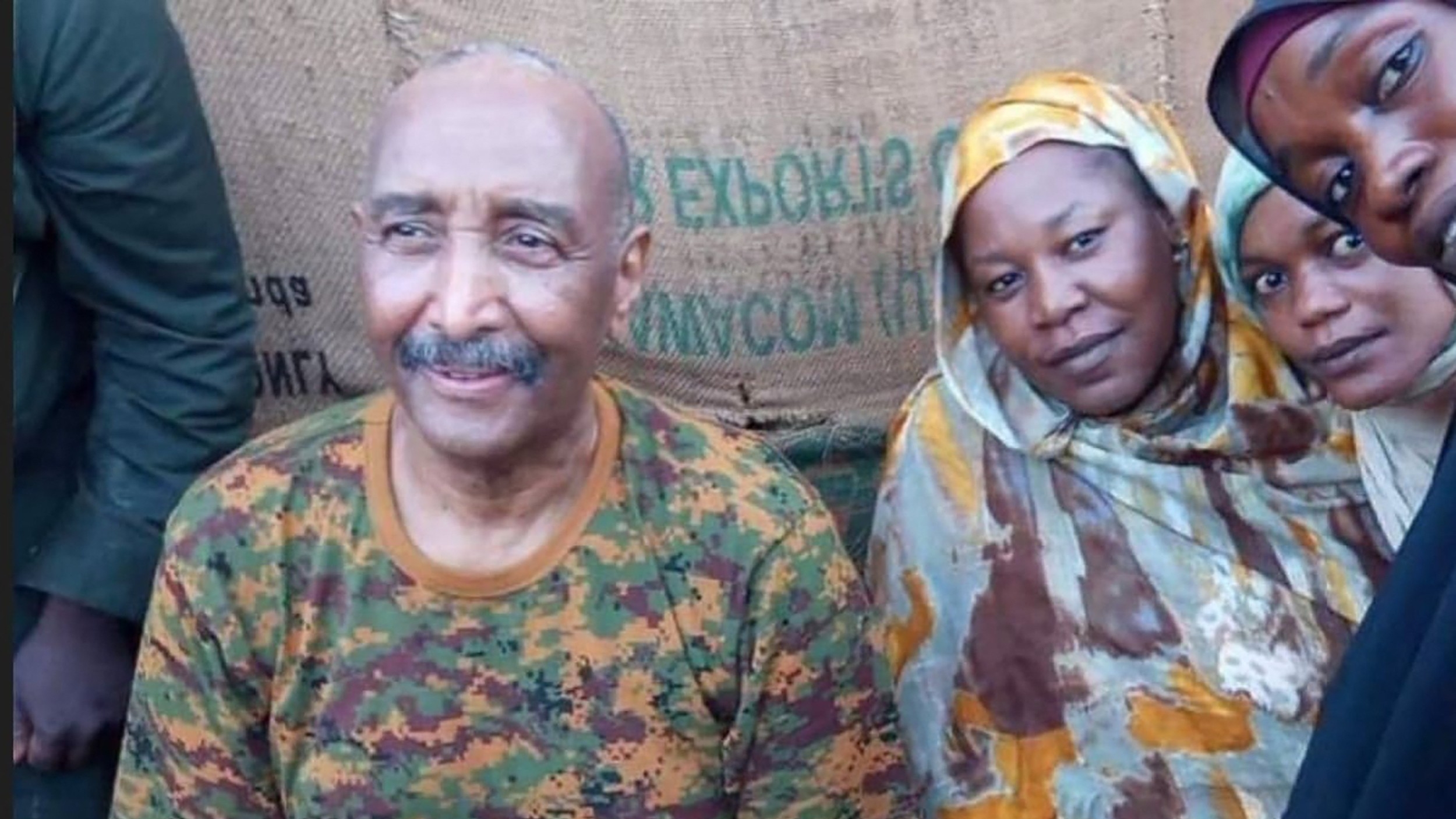
Previously mocked by his enemies as the “commander of the basement”, General Abdel Fattah al-Burhan has spent recent days traversing Sudan and rallying his troops after escaping five months of siege.
Following visits to Omdurman and Port Sudan, the head of the Sudanese army arrived in Egypt on Tuesday and is expected to go to Saudi Arabia to participate in talks with the Rapid Support Forces (RSF) paramilitary group that he’s been at war with since 15 April.
In the earliest hours of the conflict, which was sparked by attempts to fold the RSF into the regular military, paramilitary fighters pinned Burhan down in his residence within the army headquarters in the heart of Khartoum.
Some have speculated that the RSF allowed Burhan to leave the army base after regional and international pressure, with powerbrokers hoping he could join peace negotiations that have been suspended in recent weeks.
However, Burhan has publicly rejected any compromise as he’s visited River Nile and Red Sea states over the past three days, promising to fight the RSF to the bitter end.
New MEE newsletter: Jerusalem Dispatch
Sign up to get the latest insights and analysis on Israel-Palestine, alongside Turkey Unpacked and other MEE newsletters
Addressing his forces in Port Sudan’s Falamango navy base, Burhan described the conflict as a war against foreign mercenaries from around the world. He stressed that his exit had been planned and prepared by the army.
“My exit from the army headquarters wasn’t part of any deal or any help from anybody outside the army and its units,” he said, adding: “This is not time for speeches, it’s time for fighting.
“We will continue fighting to end these mercenaries, to end this treason and to end this rebellion. We will eradicate them,” Burhan said.
More than 4,000 people are believed to have been killed and another 4.5 million displaced by fighting between the Sudanese army and the RSF, which has been mostly concentrated in Khartoum and Darfur to the west.
Though both sides have been accused of abuses, allegations against the RSF are the most grievous and mounting, including mass killings and sexual violence.
The backbone of the RSF’s fighting force is drawn from Arab tribes in western Sudan, whose family ties often traverse Sudan’s borders. Supporters of the army often use these ties to claim RSF fighters are not Sudanese, a theme Burhan picked up in Port Sudan.
“The violations that [were] committed by these groups showed clearly they are not Sudanese,” he said. “This attitude is against the traditions and values of our people in Kordofan, Darfur and other parts of our country.”
Symbolic tour
Burhan’s short tour of Sudanese army positions has been seen as a morale boost for his troops, who have at times struggled against the RSF’s battle-hardened fighters.
On Thursday night, soldiers manning checkpoints in Omdurman, Khartoum’s twin city and a place largely controlled by the RSF, were surprised to suddenly see their general in front of them.
The next morning, Burhan was seen walking freely in some Omdurman streets, sitting beside vendors selling tea and food alongside his soldiers.
'My exit was achieved through a defiant army operation and fierce battles'
- Abdel Fattah al-Burhan
Then he moved to River Nile State, visiting wounded soldiers and a barracks in Atbara, where he was greeted rapturously by troops and residents, who chanted that Sudan was “one nation” with “one army”.
From Atbara, al-Damar and other River Nile State towns, Burhan travelled to Port Sudan, which has effectively become the new capital for members of the government supportive of Burhan.
In the Falamango navy base, Burhan claimed his troops fought hard to free him from the Khartoum headquarters.
“My exit was achieved through a defiant army operation and fierce battles with the participation of the navy, air defence and ground forces. There was direct fighting during this operation and even the navy base has two martyrs during the battle,” he said.
A retired general with knowledge of Burhan’s movements told Middle East Eye that the general used a helicopter to move at night from the army headquarters and landed in the Wadi Siadna air base north of Omdurman.
The source, who requested anonymity because he is not authorised to talk to the media, told MEE that Burhan’s escape was carefully prepared by military intelligence and has had a positive effect on his troops’ morale.
“Burhan has taken this important risk in order to show the capabilities of the army and the major changes that have happened in the balance of power on the ground,” he stated.
RSF roadmap
A source in the RSF, however, characterised Burhan’s exit as fleeing the battlefield, and said it was a narrow escape from the siege laid on the army’s headquarters and other key sites in Khartoum.
“Burhan has fled the battleground and is trying with people associated with the old regime and the Islamists to convince the people that his escape is a kind of victory. But the reality on the ground is denying his allegations and lies,” the source, who preferred not to be named, told MEE.
RSF leaders have long maintained that Burhan was trapped in the headquarters’ basement and couldn’t leave without their permission.
Since his escape, the RSF has barely reacted to his sabre rattling. However it recently issued a “roadmap” to solve the crisis, calling for a ceasefire and negotations.
The statement said a solution must be “based on building a new Sudan founded on democracy, diversity, tolerance, and genuine peace - elements that can only be achieved and sustained through social justice”.
However, Sudan’s pro-democracy activists have rejected the RSF’s statement, labelling it as another example of the paramilitary group using the language of human rights to mask its abuses and history of undermining Sudanese democracy.
Middle East Eye delivers independent and unrivalled coverage and analysis of the Middle East, North Africa and beyond. To learn more about republishing this content and the associated fees, please fill out this form. More about MEE can be found here.


